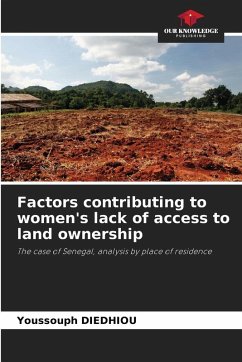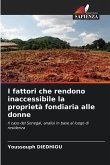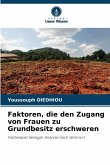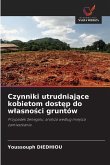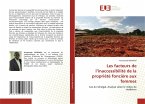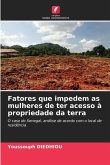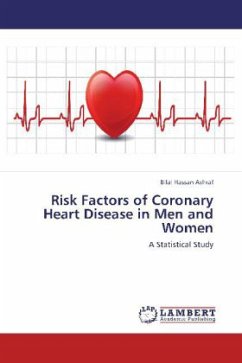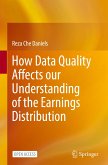Women's access to land ownership can be an important lever for their empowerment. However, this access is very limited, despite the laws and regulations put in place by legislators. In developing countries, particularly in Africa, data show that the relative inaccessibility of land ownership for women is influenced more by socio-cultural and socio-economic factors. This book offers two types of analysis: a descriptive analysis and an explanatory analysis using the binary logistic model, which made it possible to measure the influence of each factor and highlight the mechanisms at work. The unique feature of this book is that the analysis was conducted according to place of residence. This has made it possible to understand that women's lack of access to land ownership in Senegal depends on their place of residence. Individual characteristics of women are the main factors explaining women's lack of access to land ownership in urban areas. In rural areas, however, it is the contextof residence and cultural factors that contribute most to this phenomenon.
Bitte wählen Sie Ihr Anliegen aus.
Rechnungen
Retourenschein anfordern
Bestellstatus
Storno

